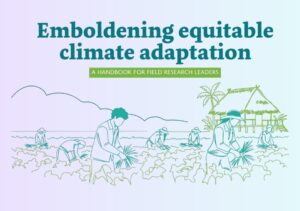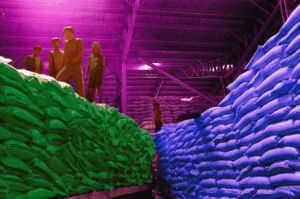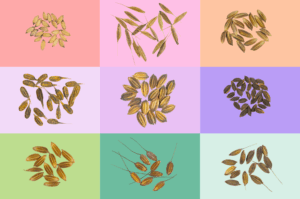Indonesia is close to achieving rice self-sufficiency as the country had stopped importing rice in the last three years.
Its national rice production reached 31.31 million tons in 2019; 31.36 million tons in 2020; and 31.33 million tons in 2021.
However, the Indonesian president encouraged the development of other food crops, such as sago, sorghum, corn, and cassava for higher production and not focus only on rice.
Read the story @Antara
More on rice production in Indonesia:
IRRI and Indonesia pens 5-year partnership to uplift agricultural productivity and farmer livelihood
Dr. Ir. Fadjri Jufry, Director General of the Indonesian Agency for Agricultural Research and Development (IAARD), signed a five-year work plan with the International Rice Research Institute (IRRI). The 2020-2024 work plan aims to increase the sustainability and productivity of rice-based agrifood systems across the country, especially in regions with high paddy production.
Developed by IRRI and the Indonesian national agricultural research and extension system (NARES) partners, the plan builds on previous agricultural initiatives and emphasizes six project areas, including agrifood policy and markets, developing climate-smart and nutritious rice varieties, sustainable agronomy for rice-based production systems, mechanization and post-harvest for rice-based production systems, digital agriculture, and capacity development and training.
Rice farming in Central Java, Indonesia—Adoption of sustainable farming practices, impacts, and implications
Persuading farmers to try out and consequently adopt new practices is challenging. Adoption rates of CSA practices in Indonesia are low. Increasingly, agricultural extension agents serve as intermediaries to enhance communication between technology developers and farmers. The CORIGAP project recognized that single, isolated interventions are unlikely to be sufficient for sustainable, climate-friendly rice production and, therefore, promoted a variety of sustainable practices and technologies.
From Warige to WeRise: better water management is coming to rainfed rice areas of Indonesia
WeRise, a weather-rice-nutrient integrated decision support system for rainfed rice areas, is an online ICT tool developed by the International Rice Research Institute (IRRI)-Japan Collaborative Research Project (IJCRP) with funding from the Ministry of Agriculture, Forestry and Fisheries of Japan. This system uses a seasonal-weather forecast that provides farmers with crucial weather information such as the start and end of the rainy season and rainfall distribution during the crop growing season. It also advises farmers when to sow and transplant, what variety is appropriate to use, and how to apply fertilizer efficiently.










